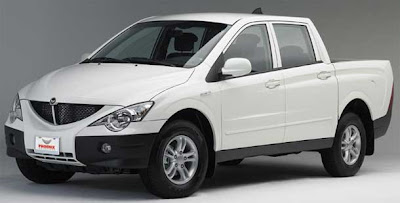Electric car makers take to the courtroom more often than the highway.
While the goal of most automakers is to make money making cars, it appears that electric car companies have another side pursuit—suing competitors. Is this all about the massive ego necessary to launch a car company? Or is it just something about electric cars? You be the judge. Here’s a rap sheet of high-profile lawsuits regarding electric and hybrid cars.
Tesla vs. Fisker
Tesla and Fisker, two Western start-up electric car companies, are playing out a classic movie Western scene where one says, “This town’s not big enough for the both of us.” Here’s the synopsis: Tesla hires Fisker for design work on its second model. Fisker submits designs and is paid. Fisker starts own electric vehicle company. Tesla sues Fisker for submitting sub par design and stealing trade secrets. Pause for legal wrangling. Judge decides in favor of Fisker and arbiter awards Fisker $1.4 million in legal fees.
Vespremi, et al, vs. Tesla
Tesla’s former PR director, David Vespremi, filed a class-action lawsuit in July 2008, suing the company for “violating the terms of his employment, not acting in good faith, violating California labor codes, failing to pay wages owed, and practicing fraudulent business practices.” In addition, he sued for libel and slander because of remarks that Tesla execs made to the press after he was laid off. The suit doesn’t name the other members of the class. Claims will not exceed $75,000.
Magna vs. Tesla
Tesla Roadster's single-speed transmission.
Magna, a Canadian-based component supplier and engineering subcontractor to many automakers around the world, charged that Tesla asked the company to build a transmission for its electric roadster, which it delivered. But Tesla walked away without paying. Meanwhile, Magna says it will roll out its own plug-in car in 2010—but only in markets where its customers don’t sell cars.
The People vs. Michael Papp
Michael Papp, the head of another electric car startup, Spark EV, went to jail after being charged with failing to deliver 14 electric vehicles for which he was paid $100,000. His retort was that he was filing for bankruptcy—for the fourth time—but that the cars will still be delivered.
ZAP vs. DaimlerChrysler (as it was known at the time)
California-based ZAP, a company that sells variety of electric scooters, bikes and three-wheeled electric vehicles, wanted to be the first to bring Smart cars to the United States. Reuters reported in 2005 that ZAP ordered $1 billion worth of vehicles from Smart. DaimlerChrysler said it was unaware of the order. ZAP sued Daimler over what it termed “severe misconduct” and interference with ZAP’s business. The suit was initially thrown out of California’s lower courts, but Zap is appealling the case to the California Supreme Court.
Daimler vs. Ovonics vs. Japanese Battery Makers
Ovonics Battery Company, a subsidiary of Energy Conversion Devices that eventually became Cobasys, filed lawsuits in 2001 against Matsushita Battery Industrial Co., Ltd., Toyota Motor Corp., Panasonic EV Energy Co., Ltd., and several related entities for patent infringement on its nickel metal hydride battery technology. Ovonics won the settlement, but found itself back in legal trouble in 2008, when Daimler AG, maker of Mercedes-Benz luxury cars, sued Cobasys for failing to provide hybrid battery packs as agreed for a planned Mercedes-Benz hybrid.
Boshart Engineering vs. Phoenix Motorcars
For years, Phoenix Motorcars has been planning to sell an all-electric “sport utility truck,” using a Korean-built Ssanyong chassis. The company promises to deliver an electric SUV soon afterward. The company cut its ties with its motor supplier and engineering firm, Boshart Engineering. Boshart then sued Phoenix for reneging on its contract.
Toyota vs. Paice LLC
In May 2008, the US Supreme Court allowed a lower court's ruling to stand which awards Paice LLC roughly $4.3 million in a patent lawsuit related to Toyota’s use of a microprocessor, which communicates information from the electric motor and internal combustion engine. Two other hybrid lawsuits with Toyota are pending, including one with Conrad Gardner, a 75-year-old Seattle-based engineer who filed a hybrid patent in the early 1990s. Gardner sued Toyota to, in his words, “to teach them a lesson to respect the patents of others.”
New York Taxicab Board vs. City of New York
The Metropolitan Taxicab Board of Trade filed a suit against the City of New York claiming that Ford Escapes Hybrids mandated for use as taxis in the city were “unsafe” because they aren’t designed to be used as cabs.
Detroit vs. California
The biggest and most consequential lawsuits have been, and continue to be, filed by the big auto companies. In 2003, General Motors, DaimlerChrysler and Izusu Motors fought the State of California over its zero emission vehicle mandate, claiming it was an end run on the federal role of setting vehicle fuel economy standards. That one was settled out of court—but it led to the infamous “killing of the electric car.” Battles over emissions between Detroit, the State of California and the federal government continues to this day.
Lawsuits are so much a part of the landscape that the California Air Resources Board, the agency behind the zero emission vehicle mandate and many other regulations, has a standing item on its monthly agenda to discuss the status of various suits brought against it by the
auto industry.









